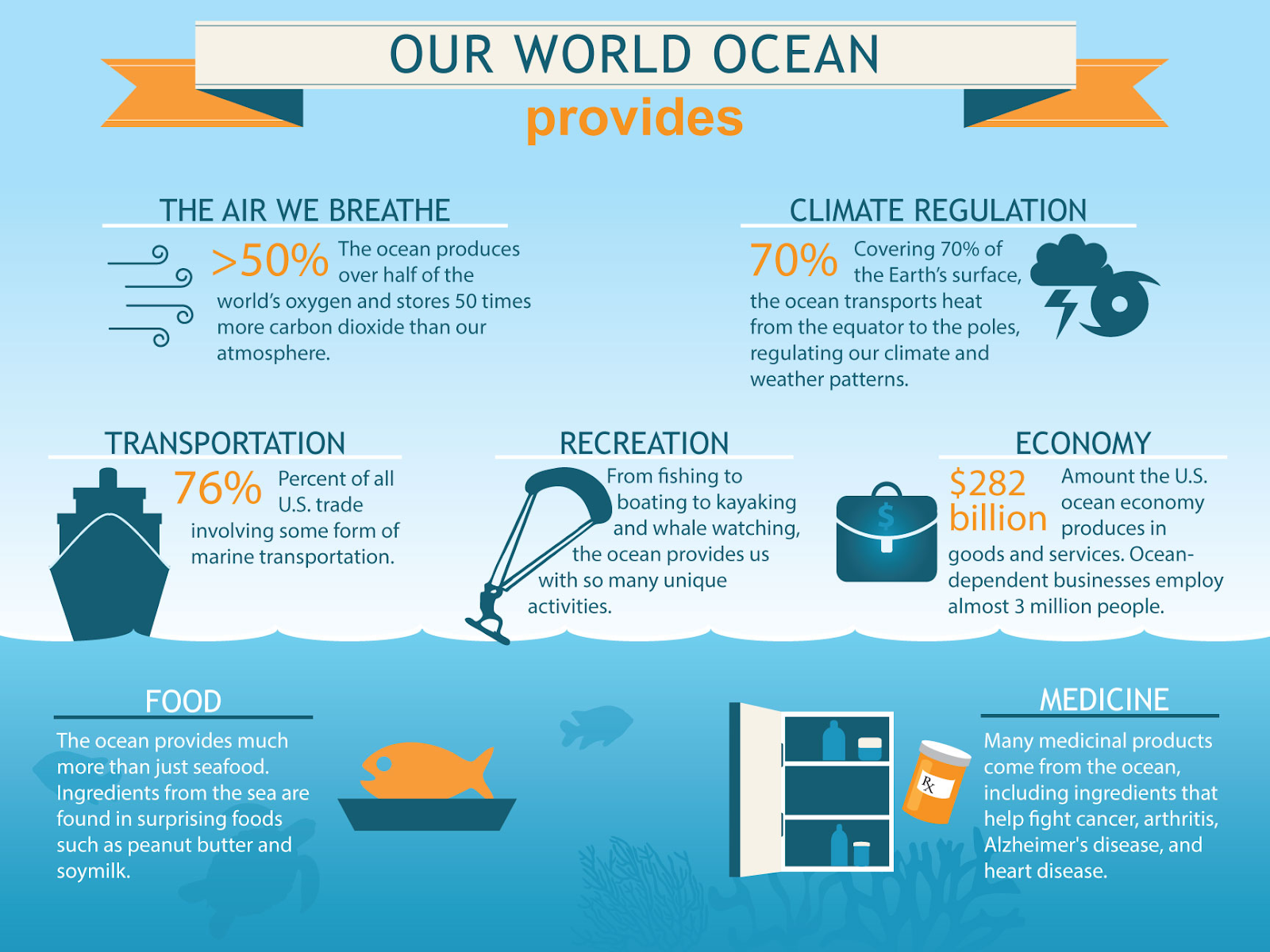CURRENT AFFAIRS
Get the most updated and recent current affair content on Padhaikaro.com
One Ocean Summit
- Vaid's ICS, Lucknow
- 14, Feb 2022

Why in News?
- India is committed to eliminating single-use plastic and the Indian Navy will contribute 100 ship days to clean the plastic waste from the sea, said the PM during the One Ocean Summit.
About
One Ocean Summit:
- Organised by: France in Brest in cooperation with the United Nations and the World Bank.
- Objective: To mobilize the international community to take action towards preserving and supporting healthy and sustainable ocean ecosystems.
- It was addressed by various other Heads of State and Governments from countries like Germany, the United Kingdom, South Korea, Japan, Canada among others.
India’s Stand at Summit:
- India has always been a maritime civilisation. Our ancient scriptures and literature talk about the gifts of the Oceans including marine life.
- India supports the French initiative of a ”High Ambition Coalition on Biodiversity Beyond National Jurisdiction ”.
- India will be joining France in launching a global initiative on single-use plastics.
- India supports the French initiative of a high ambition coalition on biodiversity beyond national jurisdiction.
- India would phase out single-use plastic by 2022.
- The country recently undertook a nationwide awareness campaign to clean plastic and other waste from coastal areas.
- India hopes for a legally binding international treaty this year regarding a coalition on biodiversity.

Government Initiatives:
- Economic Survey 2021-22 announced recently said that India has progressed on the fulfillment of Sustainable Development Goals (SDGs).
- India had announced its first Nationally Determined Contribution (NDC) under the Paris Agreement in 2015, and in 2021 announced ambitious targets to be achieved by 2030 to enable further reduction in emissions.
- There is a need to start the one-word movement ‘LIFE’ which means Lifestyle for Environment urging mindful and deliberate utilization instead of mindless and destructive consumption.
- India has been exercising significant climate leadership at the international stage under the International Solar Alliance (ISA), Coalition for Disaster Resilient Infrastructure (CDRI) and Leadership Group for Industry Transition (LeadIT Group).
- 3P movement for climate change: PM introduced the “P3 (Pro-Planet People) movement” that shows India’s commitments towards climate change.
Global Initiatives to Preserve Oceans
- Legal efforts have been made at the international and national levels to address marine pollution.
The most important are:
- The 1972 Convention on the Prevention of Marine Pollution by Dumping Wastes and Other Matter (or the London Convention)
- The 1996 Protocol to the London Convention (the London Protocol)
- The 1978 Protocol to the International Convention for the Prevention of Pollution from Ships (MARPOL).
- The United Nations Environment Program (UNEP) considers plastic marine debris and its ability to transport harmful substances as one of the main emerging issues affecting the environment.
- At the 2015 G7 summit in Bavaria, Germany, the risks of microplastics were acknowledged in the Leaders’ Declaration.
The Global Programme of Action (GPA) for the Protection of the Marine Environment from Land-based Activities:
- The GPA is the only global intergovernmental mechanism directly addressing the connectivity between terrestrial, freshwater, coastal and marine ecosystems.
Greenpeace:
- It is an environmental NGO that is dedicated to conserving the oceans and marine life across the globe.
- Its grassroots efforts have resulted in the ban of destructive fishing practices, companies changing their fishing policies, and the creation of whale sanctuaries.
- Glo Litter Partnerships Project (Launched by the IMO)
Facts for Prelims :
Exercise MILAN
- Exercise Milan is scheduled to be held from February 25 to March 4 for which 46 countries have been invited.
More In News
- The Indian Navy is set to hold the 12th President’s Fleet Review (PFR) on February 21 at Visakhapatnam.
About Exercise Milan
- It is a biennial, multilateral naval exercise which started in 1995.
- It has so far been held at Port Blair in Andaman and Nicobar but is now being shifted to Visakhapatnam which offers more infrastructure as well as sea space for the exercise.
- It has several themes such as anti-submarine warfare among others along with deliberations, including by subject matter experts.
- The areas of cooperation of the exercise include capacity building, marine domain awareness, training, hydrography, technical assistance, and operational exercises.
- During the exercise, the Navy will also be showcasing its Deep Submergence Rescue Vessel (DSRV) capabilities meant to rescue submarines in distress.
- India is one of the few countries in the region which possesses this capability.
- This year’s Milan will see the participation of all Quad countries, with the U.S. being invited for the first time.